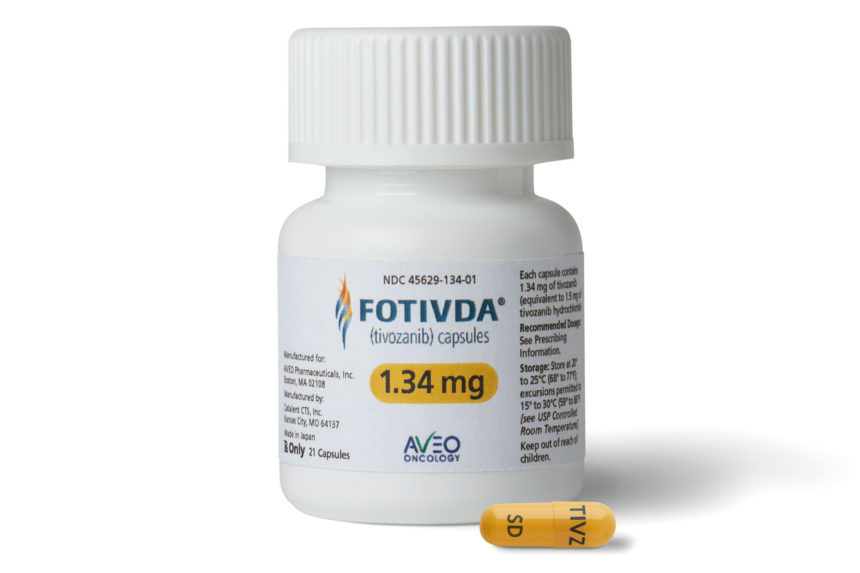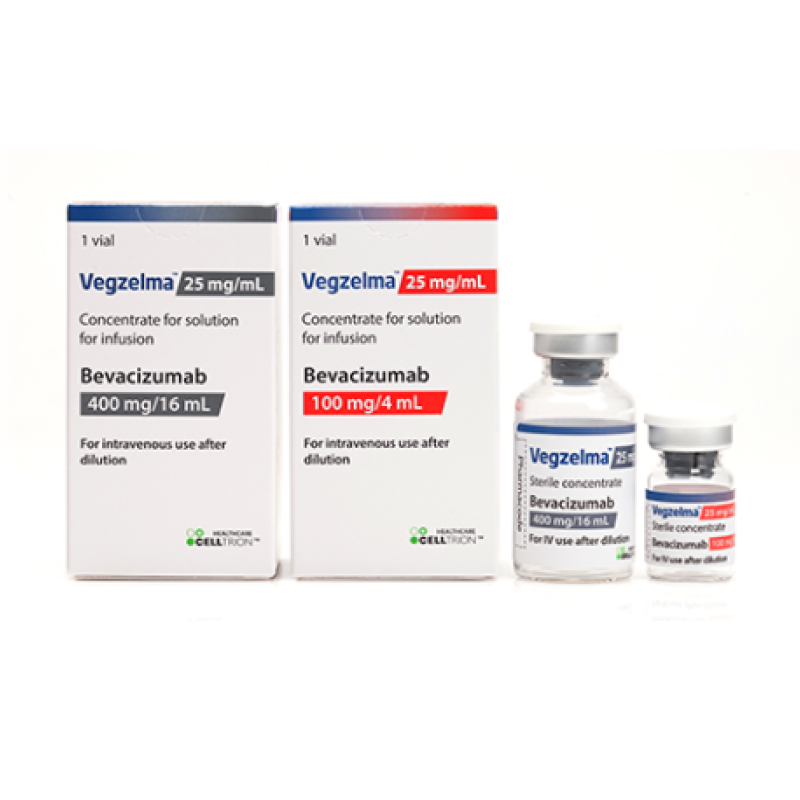Fotivda (tivozanib) vs Vegzelma (bevacizumab-adcd)
Fotivda (tivozanib) vs Vegzelma (bevacizumab-adcd)
Fotivda (tivozanib) is an oral vascular endothelial growth factor (VEGF) receptor tyrosine kinase inhibitor specifically indicated for the treatment of adult patients with relapsed or refractory advanced renal cell carcinoma (RCC). Vegzelma (bevacizumab-adcd) is a biosimilar to bevacizumab, a monoclonal antibody administered via infusion, and it inhibits VEGF, thereby used for various types of cancer, including metastatic colorectal cancer, non-small cell lung cancer, and renal cell carcinoma. When deciding between the two, a patient should consider the type of cancer, the method of administration preferred, and the specific indications and side effect profiles, as discussed with their healthcare provider.
Difference between Fotivda and Vegzelma
| Metric | Fotivda (tivozanib) | Vegzelma (bevacizumab-adcd) |
|---|---|---|
| Generic name | Tivozanib | Bevacizumab-adcd |
| Indications | Advanced renal cell carcinoma | Metastatic colorectal cancer, non-small cell lung cancer, glioblastoma, renal cell carcinoma, cervical cancer |
| Mechanism of action | VEGF receptor tyrosine kinase inhibitor | Monoclonal antibody that inhibits angiogenesis by binding to VEGF |
| Brand names | Fotivda | Vegzelma |
| Administrative route | Oral | Intravenous |
| Side effects | Hypertension, diarrhea, fatigue, decreased appetite, nausea | Hemorrhage, hypertension, thromboembolism, proteinuria, gastrointestinal perforation |
| Contraindications | Hypersensitivity to tivozanib or any component of the formulation | Hypersensitivity to bevacizumab, bevacizumab products, or any component of the formulation |
| Drug class | Tyrosine kinase inhibitor | Monoclonal antibody |
| Manufacturer | Aveo Pharmaceuticals | Celltrion Healthcare |
Efficacy
Efficacy of Fotivda (Tivozanib) in Treating Kidney Cancer
Fotivda (tivozanib) is an oral, once-daily, vascular endothelial growth factor (VEGF) receptor tyrosine kinase inhibitor. It is specifically indicated for the treatment of adult patients with relapsed or refractory advanced renal cell carcinoma (RCC) following two or more prior systemic therapies. The efficacy of Fotivda in kidney cancer was demonstrated in a phase 3 clinical trial known as the TIVO-3 study. This trial compared tivozanib to sorafenib, another therapy for RCC, in patients who had undergone previous treatments. The results showed that tivozanib significantly improved progression-free survival (PFS), which is the length of time during and after medication treatment that a patient lives with the disease without it getting worse.
In the TIVO-3 trial, the median progression-free survival for patients treated with tivozanib was 5.6 months compared to 3.9 months for those on sorafenib. Moreover, the objective response rate, which is the proportion of patients with a partial or complete response to the therapy, was higher in the tivozanib group. These findings suggest that Fotivda may offer a beneficial treatment option for patients with advanced RCC who have limited responses to prior regimens.
Efficacy of Vegzelma (Bevacizumab-adcd) in Treating Kidney Cancer
Vegzelma (bevacizumab-adcd) is a biosimilar to the original biological drug bevacizumab, which is marketed under the brand name Avastin. Bevacizumab is a monoclonal antibody that works by inhibiting VEGF, thereby reducing the blood supply to tumors and slowing their growth. It is approved for use in combination with interferon alfa for the treatment of metastatic renal cell carcinoma (mRCC), which is a type of advanced kidney cancer. The efficacy of bevacizumab in kidney cancer has been established in several clinical trials, and Vegzelma, as a biosimilar, is expected to have similar efficacy and safety profiles to the reference product.
One of the pivotal studies that supported the original approval of bevacizumab for mRCC was the phase III AVOREN trial, which demonstrated that adding bevacizumab to interferon alfa significantly improved progression-free survival compared to interferon alfa alone. Patients receiving the combination treatment experienced a median PFS of 10.2 months, versus 5.4 months for those receiving interferon alfa alone. As a biosimilar, Vegzelma's approval is based on data that show it is highly similar to bevacizumab, with no clinically meaningful differences in terms of safety, purity, and potency in treating the condition.
It is important to note that while both Fotivda and Vegzelma target the VEGF pathway, they do so through different mechanisms and are used in different lines of therapy for kidney cancer. Patients should consult with their healthcare provider to determine the most appropriate treatment option based on their specific medical condition and treatment history.
Regulatory Agency Approvals
Fotivda
-
European Medical Agency (EMA), European Union

-
Food and Drug Administration (FDA), USA

Vegzelma
-
European Medical Agency (EMA), European Union

-
Food and Drug Administration (FDA), USA

Access Fotivda or Vegzelma today
If Fotivda or Vegzelma are not approved or available in your country (e.g. due to supply issues), you can access them via Everyone.org.
How it works

Make an enquiry
Choose the medicine you want to buy, answer a couple of questions, and upload your prescription to speed things up. We’ll get back to you within 24 hours.


Make an enquiry
Choose the medicine you want to buy, answer a couple of questions, and upload your prescription to speed things up. We’ll get back to you within 24 hours.


Breeze through the paperwork
We'll guide you through the required documents for importing unapproved medicine, ensuring you have all the necessary information.


Get a personalized quote
We’ll prepare a quote for you, including medicine costs and any shipping, administrative, or import fees that may apply.


Receive your medicine
Accept the quote and we’ll handle the rest - sourcing and safely delivering your medicine.

Some text on this page has been automatically generated. Speak to your physician before you start a new treatment or medication.
Let's talk
If you have any questions, call us or send us a message through WhatsApp or email:
Contact us




